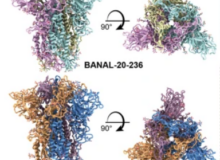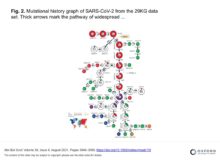Jonathan Latham
Ninety six leading psychiatric geneticists have publicly requested their scientific funding agencies not to abandon the search for genetic links to mental health. In a letter, published Aug 9th in the journal Molecular Psychiatry, they argue that the ongoing failure to uncover significant disease genes for mental illness does not indicate that current research is fundamentally misdirected.
Instead, they believe that current experimental designs lack sufficient statistical power. And it is a defect they want remedied by further studies. “Since family history is a major risk factor” they write “we urge the major funding bodies worldwide to continue to support GWAS (Genome-Wide Association Studies) as a major investigative tool’.
The unprecedented letter is in response to growing scepticism of the search for genetic origins of disease. Criticism of the GWAS approach has been particularly severe since its results, especially in psychiatry, have almost entirely failed to support the idea that human diseases, including mental disorders, have a strong genetic basis. The biggest find so far is the ApoE4 variant that contributes to Alzheimer’s disease.
These criticisms have become steadily bolder. The most recent include a paper in JAMA documenting the non-replicability of many GWAS findings and a paper by psychologist and behavioural geneticist Eric Turkheimer of the University of Virginia (Ioannidis and Panagiotou 2011; Turkheimer 2011). Writing in the International Journal of Epidemiology Turkheimer proposes that “the molecular genetic project has foundered” .
Patrick Sullivan, who coordinated the Molecular Psychiatry letter, disagrees. While he conceded in a telephone interview that “common (genetic) variants of strong effect are not there. We have now proved that”, he still believes the genetic approach is the right one. “In one hundred years of searching for explanations of mental health very little has worked. GWAS at least has given some results.”
It is not only the theory of genetic determination of mental health that is finding itself challenged, however. Even when potential disease genes are found, they are not necessarily useful, points out Claudia Chaufan of the University of California (San Francisco). “In the case of diabetes, while genes may be of interest to researchers, studies show that whether you have a gene or not you still should get the same treatment” she says. Patrick Sullivan, however, believes that criticism to be unfair. “To do more meaningful clinical work on schizophrenia we need to understand it”.
Jay Joseph, author of The Gene Illusion, remains unconvinced by the letter. He also finds it puzzling that the authors chose not to cite evidence from twin studies to argue for a strong genetic component to mental health. “Almost everyone recognizes that family histories cannot disentangle potential genetic and environmental influences” says Joseph. Possibly the authors believe that twin studies, which have always been touted as the best evidence that genetics has a key role in disease causation, no longer have the credibility they once did.
David Cohen of the Robert Stempel School of Public Health at Florida International University, considers that researchers need to take a step back even further. For schizophrenia, which is the disease the authors of the Molecular Psychiatry letter chose to make their case, he wrote in an email, “schizophrenia remains neither sufficiently well defined nor properly circumscribed for adequate research into its genetic correlates.” Symptomatic of this, he points out, is that “the current DSM-V proposals recommend flatly eliminating the five schizophrenia subtypes that have been part of the conception of schizophrenia for at least 60 years”.
The letter to Molecular Psychiatry indicates that researchers perceive a substantial challenge to basic genetic research in mental health. That same challenge is also faced by researchers who work on diseases, such as diabetes and cancer, that can be measured as objective physiological disturbances but who have nevertheless had no more success than mental health researchers in identifying disease susceptibility genes. These researchers will be watching the fate of mental health genetics with considerable interest.
References
Ioannidis JPA and Panagiotou OA (2011) Comparison of Effect Sizes Associated With Biomarkers Reported in Highly Cited Individual Articles and in Subsequent Meta-analyses. J. American Medical Association 305(21):2200-2210
Joseph J (2004) The Gene Illusion. Algora Publishing
Sullivan P et al (2011) Don’t give up on GWAS. doi:10.1038/mp.2011.94
Turkheimer E (2011) Commentary: Variation and Causation in the Environment and Genome.
International Journal of Epidemiology 40: 598-601.



